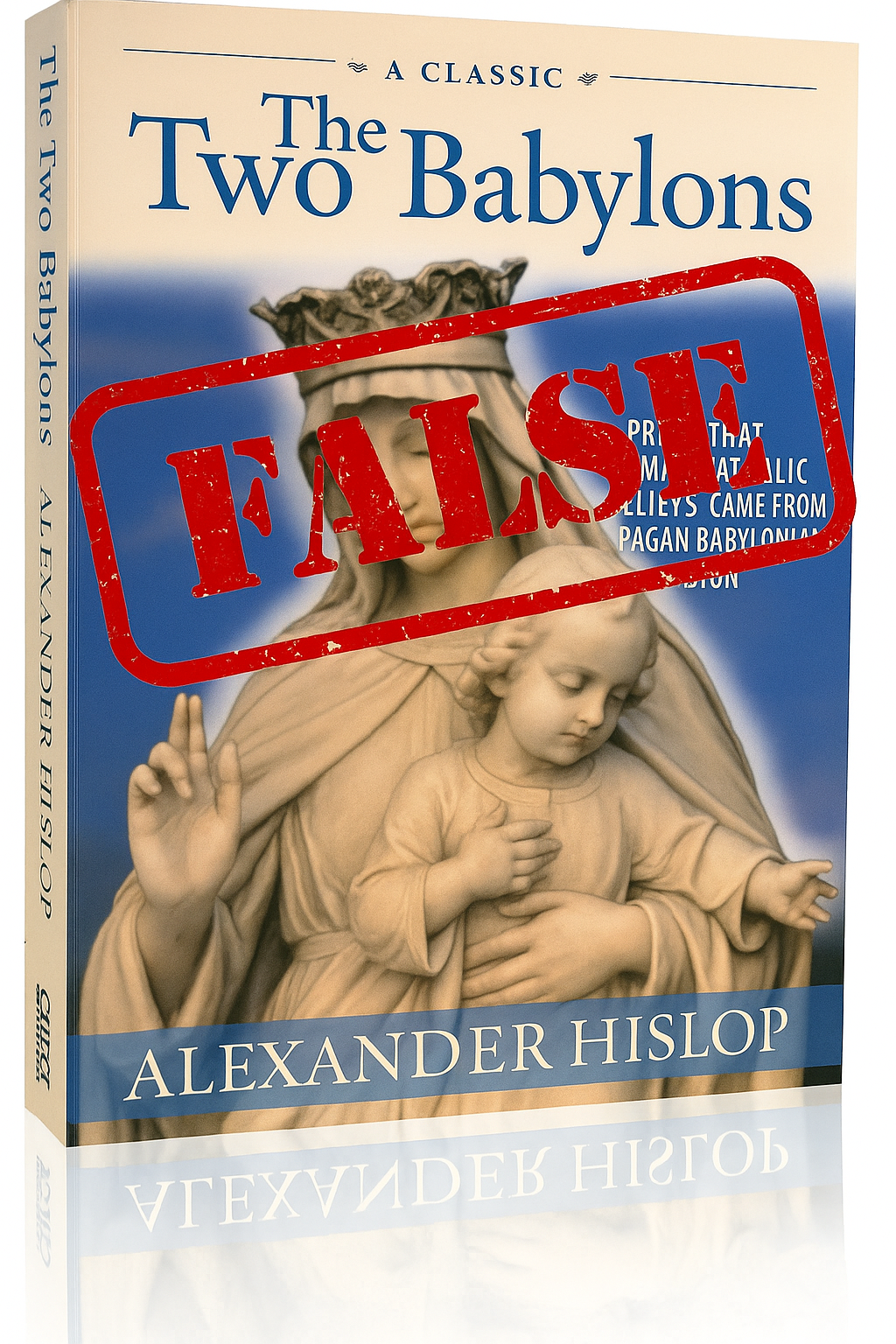26 Differences Between Muhammad and Jesus

If you’ve ever spent any time online, either in random Facebook comment threads or reading the news, I’m sure you’ve come across the claim that Islam and Christianity are basically the same and that “we all worship the same God”, getting lumped together as an “Abrahamic religion” along with Judaism.
Muslims claim Islam “is the completed final version of the previous messages originally revealed to Moses and Jesus” which came to “correct the deviations of Christianity”, which had apparently become corrupt by the seventh century when Muhammad came along.
But for something which is meant to come from the same God at its core, it would suggest that God got pretty much everything central wrong in the teachings of Jesus (and the prophets) since what Muhammad taught and lived like is very different. To add more suspicion to it, Muhammad claims to have received the Qur’an from an angel, which would conflict with what Paul warned about: “But even if we or an angel from heaven should proclaim to you a gospel contrary to what we proclaimed to you, let that one be accursed!” (Gal 1:8). I’ll add more commentary at the end, so without further ado, here are 26 differences for your consideration:
- Muhammad said Allah hates those who don’t accept Islam. (Qur’an 3:32, 22:38, 30:45).
- 👉 Jesus said God loves everyone, and he came to lay down his life for the world. (John 3:16; 10:11; 16:27; 1 John 3:16; 4:7–8)
- Muhammad said, “I have been commanded to fight against people till they testify that there is no god but Allah, and that Muhammad is the messenger of Allah” (Muslim 1:33)
- 👉 Jesus said, “He who lives by the sword will die by the sword.” (Matthew 26:52) and, “But I say to you: Do not resist an evildoer. But if anyone strikes you on the right cheek, turn the other also” (Matthew 5:9)
- Muhammad stoned women for adultery. (Muslim 4206)
- 👉 Jesus said, “Let he who is without sin cast the first stone.” (John 8:7 [for the sake of argument, I know the pericope adulterae is a textual variant, so here’s a good article in favour of its historicity])
- Muhammad permitted stealing from unbelievers. (Bukhari 44:668, Ibn Ishaq 764, Qur’an 8:69, 33:27, 48:20).
- 👉 Jesus said, “You shall not steal.” (Matthew 19:18; Luke 19:8–9)
- Muhammad permitted lying. (Sahih Muslim 6303, Bukhari 49:857)
- 👉 Jesus said, “You shalt not bear false witness.” (Matthew 19:18)
- Muhammad owned and traded slaves. (Sahih Muslim 3901)
- 👉 Jesus neither owned nor traded slaves or commanded his followers to have slaves.
- Muhammad beheaded 800 Jewish men and boys. (Sahih Muslim 4390)
- 👉 Jesus said, “Love your enemies and pray for those who persecute you” (Matthew 5:44–45)
- Muhammad murdered those who insulted him (Bukhari 56:369, 4:241)
- 👉 Jesus preached forgiveness (Matthew 5:38–39, 18:21–22)
- Muhammad said, “if anyone attacks you, retaliate in the same manner.” (Qur’an 2:194)
- 👉 Jesus said, “If someone strikes you on the right cheek, turn to him the other also.” (Matthew 5:39)
- Muhammad claimed jihad in the way of Allah elevates one’s position in Paradise by a hundredfold. (Muslim 4645)
- 👉 Jesus said, “Blessed are the peacemakers, for they will be called Sons of God” (Matthew 5:9)
- Muhammad married 13 wives and kept sex slaves (Bukhari 5:268, Qur’an 33:50)
- 👉 Jesus taught marriage was between one man and one woman (Matthew 19:4–6)
- Muhammad slept with a 9-year-old child (Sahih Muslim 3309, Bukhari 58:236)
- 👉 Jesus blessed children and warned against harming them (Mark 9:42; Matthew 19:13–15)
- Muhammad ordered the murder of women (Ibn Ishaq 819, 995)
- 👉 Jesus healed and forgave multiple women (Luke 7:47–48, 8:2; Mark 5:28–29,34; 16:9)
- Muhammad said, “O you who believe! Fight those of the unbelievers who are near to you and let them find in you hardness.” (Qur’an 9:123)
- 👉 Jesus taught, “Blessed are the meek, for they shall inherit the earth.” (Matthew 5:5)
- Muhammad ordered 65 military campaigns and raids in 10 years (Ibn Ishaq)
- 👉 Jesus ordered no military campaigns, nor offered any approval of war or violence, and stopped his disciples from causing violence. (Luke 9:53–55; 22:49–51)
- Muhammad killed captives taken in battle (Ibn Ishaq 451)
- 👉 Jesus never took captives and never killed anyone.
- Muhammad encouraged his men to rape enslaved women (Abu Dawood 2150, Qur’an 4:24)
- 👉 Jesus never encouraged rape and never enslaved women.
- Muhammad demanded captured slaves and a fifth of all other loot taken in war (Qur’an 8:41)
- 👉 Jesus took no booty or charity. He taught, “The Son of Man came not to be served, but to serve.” (Matthew 20:28)
- Muhammad was never tortured but tortured others (Muslim 4131, Ibn Ishaq 436, 595, 734, 764).
- 👉 Jesus suffered torture but never tortured anyone. (Luke 23:21–22; Matthew 27:26)
- Muhammad said, “And fight them until there is no more persecution and religion is only for Allah” (Qur’an 8:39)
- 👉 Jesus said, “Love your enemies and pray for those who persecute you” (Matthew 5:44)
- Muhammad ordered the brutal murder of a half-blind man (al-Tabari 1440)
- 👉 Jesus healed a blind man (John 9:13–15)
- Muhammad ordered a slave to build the very pulpit from which he preached Islam (Bukhari 47:743).
- 👉 Jesus was a servant and even washed his disciple’s feet (John 13:5)
- What are the Greatest Commandments? Muhammad’s answer: “Belief in Allah and Jihad in His cause” (Muslim 1:149; Sahih al-Bukhari 36)
- 👉 What are the Greatest Commandments? Jesus’ answer: “You shall love the Lord your God with all your heart and with all your soul and with all your mind”, and “You shall love your neighbour as yourself” (Matthew 22:34–40)
- Muhammad demanded the protection of armed bodyguards, even in a house of worship (Qur’an 4:102).
- 👉 Jesus chastised anyone attempting to defend him with force and didn’t travel armed and guarded (John 18:10–12; Mark 14:48–50; Luke 22:52–53)
- Muhammad advocated crucifying others who oppose him (Qur’an 5:33)
- 👉 Jesus was himself crucified for the benefit of others (Matthew 20:28; 27:35; Mark 10:45; 15:25; Luke 23:33; John 19:18)
- Muhammad had others give their lives for him (Sahih Muslim 4413)
- 👉 Jesus willingly gave his life for others (Matthew 20:28; 26:28; Mark 10:45; 14:24; John 10:11,18; 15:12–13)
- Bonus: Allah is an enemy of disbelievers (Qur’an 2:98)
- 👉 God is love and desires everyone to be saved, and that none should perish (John 3:16; 1 John 4:8; 1 Timothy 2:3–4)
Hopefully, by now you can see that Islam and Christianity are not even remotely alike, have no basis or connection to one another, and fully contradict. Muhammad called for violence repeatedly and lived a corrupt, selfish and lavish lifestyle. Something no true prophet of the Scriptures ever was like, especially not Jesus. Any similarities are purely superficial and are lifted from the Gospels and imported into the Quran with similar wording.
Hilaire Belloc, a historian of the early twentieth century, in his book The Great Heresies, said this about Islam:
Mohammedanism was a heresy: that is the essential point to grasp before going any further. It began as a heresy, not as a new religion. It was not a pagan contrast with the Church; it was not an alien enemy. It was a perversion of Christian doctrine. Its vitality and endurance soon gave it the appearance of a new religion, but those who were contemporary with its rise saw it for what it was not a denial, but an adaptation and a misuse, of the Christian thing. It differed from most (not from all) heresies in this, that it did not arise within the bounds of the Christian Church. The chief heresiarch, Mohammed himself, was not, like most heresiarchs, a man of Catholic birth and doctrine to begin with. He sprang from pagans. But that which he taught was in the main Catholic doctrine, oversimplified. (p.33)
John of Damascus, a Church Father who lived during the rise of Islam in the seventh century, wrote some harsh words about the new religion, which he also claimed is more accurately described as a Christological heresy and a cult. Islam is to ancient Christianity, what Arianism was to the Nicene orthodoxy of the day, and what Mormons and Jehovah’s Witnesses are to the modern Church: heretical schisms based on bad understandings of orthodox theology which have morphed into their own sects over time.
From that time to the present a false prophet named Mohammed has appeared in their midst. This man, after having chanced upon the Old and New Testaments and likewise, it seems, having conversed with an Arian monk, devised his own heresy. Then, having insinuated himself into the good graces of the people by a show of seeming piety, he gave out that a certain book had been sent down to him from heaven. He had set down some ridiculous compositions in this book of his and he gave it to them as an object of veneration.
There are many other extraordinary and quite ridiculous things in this book which he boasts was sent down to him from God. But when we ask: ‘And who is there to testify that God gave him the book? And which of the prophets foretold that such a prophet would rise up?’ — they are at a loss. … Then they reply that the book came down to him while he was asleep. Then we jokingly say to them that, as long as he received the book in his sleep and did not actually sense the operation, then the popular adage applies to him (which runs: You’re spinning me dreams).
And again, in the book of The Heifer, he says some other stupid and ridiculous things, which, because of their great number, I think must be passed over. He made it a law that they be circumcised and the women, too, and he ordered them not to keep the Sabbath and not to be baptized. — John of Damascus, Fount of Knowledge, Heresies
This isn’t even touching on the issue of the Crusades, which were the Church’s response to centuries of violent opposition and persecution by Islamic followers who violently spread their religion (see links at the bottom for more on this). Not the other way around as is commonly thought. Maybe I'll follow this up with a post about the Crusades.
If Islam is meant to ‘correct’ Christianity, and Muhammed is meant to be the last great prophet following after Jesus… then why did he live a life and teach a belief directly opposed to everything Jesus said and stood for? Islam holds Jesus very highly, yet Muhammed lived nothing like Jesus, and thinks he came to correct everything Jesus taught his followers; the whole system is a contradiction!
To summarise: the two religions are diametrically opposed in every way conceivable. Islam may claim a common root in Abraham but that's really where any commonalities end, as I hope you can see by now that we can't all be worshipping the same God if their teachings contradict.
Only the true religion of peace and love can be found in Christianity through Christ Jesus, the Son of God.
Sources and Further Reading
- Bill Warner, PhD: Jihad vs Crusades — YouTube
- The Crusades Were a Reasonable Response to Unchecked Islamic Aggression — EWTN Global Catholic Television Network
- The Crusades: A Response to Islamic Aggression | Gates of Vienna
- Is Islam the Continuation of Christianity? | About Islam
- How Islam Conquered Christianity — Christianity.com
- Christianity and Islam | Facts about the Muslims & the Religion of Islam
- St. John of Damascus’s Critique of Islam — Orthodoxinfo.com
- St. John of Damascus on Islam — Mike Aquilina (fathersofthechurch.com)
- Did John Write the Story of the Woman Caught in Adultery? — CityLight Church — A Church-Planting Church (citylightseattle.com)
- The Great Heresies: Amazon.co.uk: Belloc, Hilaire: 9781948231633: Books
- Belloc: The Great Heresies (fisheaters.com)
- Islam Watch — “Muhammad’s Massacres And Sex-slaves” by Reason (islam-watch.org)
- Comparing Jesus and Muhammad, Christianity and Islam (thereligionofpeace.com)
- SUNAN ABU-DAWUD, BOOK 38: Prescribed Punishments (Kitab Al-Hudud) (thereligionofpeace.com)
- Myth: Muhammad Would Never Approve of Murder (thereligionofpeace.com)
- Quran.com
Leave a comment Like Back to Top Seen 4.7K times Liked 1 times
Enjoying this content?
Support my work by becoming a patron on Patreon!
By joining, you help fund the time, research, and effort that goes into creating this content — and you’ll also get access to exclusive perks and updates.
Even a small amount per month makes a real difference. Thank you for your support!
Subscribe to Updates
If you enjoyed this, why not subscribe to free email updates and join over 853 subscribers today!
My new book is out now! Order today wherever you get books
Recent Posts
Luke J. Wilson | 20th May 2025 | Islam
You are not alone. Around the world, many Muslims — people who already believe in one God, pray, and seek to live righteously — are drawn to know more about Jesus (ʿĪsā in Arabic). Some have heard He is more than a prophet. Some have sensed His presence in a dream or vision. And some simply long to know God more deeply, personally, and truly. So what does it mean to become a Christian? And how can you take that step? This guide is for you. 1. What Christians Believe About God and Jesus ➤ One God, Eternal and Good Christians believe in one God — the same Creator known to Abraham, Moses, and the prophets. But we also believe God is more personal and relational than many realise. In His love, He has revealed Himself as Father, Son (Jesus), and Holy Spirit — not three gods, but one God in three persons. ➤ Jesus Is More Than a Prophet Muslims honour Jesus as a great prophet, born of the virgin Mary. Christians also affirm this — but go further. The Bible teaches that Jesus is the Word of God (Kalimat Allāh), who became flesh to live among us. He performed miracles, healed the sick, raised the dead — and lived without sin.Jesus came not just to teach but to save — to bring us back to God by bearing our sins and rising again in victory over death. 2. Why Do We Need Saving? ➤ The Problem: Sin All people — no matter their religion — struggle with sin. We lie, get angry, feel jealous, act selfishly, or fail to love God fully. The Bible says: “All have sinned and fall short of the glory of God.” (Romans 3:23) Sin separates us from God. And no matter how many good deeds we do, we can never make ourselves perfect or holy before Him. ➤ The Solution: Jesus Because God loves us, He did not leave us in our sin. He sent Jesus, His eternal Word, to live as one of us. Jesus died willingly, offering His life as a sacrifice for our sins, then rose again on the third day. “But God proves his love for us in that while we still were sinners Christ died for us.” (Romans 5:8) 3. How Do I Become a Christian? Becoming a Christian is not about joining a Western religion. It’s about entering a relationship with God through faith in Jesus Christ. Here is what the Bible says: ✝️ 1. Believe in Jesus Believe that Jesus is the Son of God, that He died for your sins, and that He rose again. “If you confess with your lips that Jesus is Lord and believe in your heart that God raised him from the dead, you will be saved.” (Romans 10:9) 💔 2. Repent of Your Sins Turn away from sin and ask God to forgive you. This is called repentance. It means being truly sorry and choosing a new way. “Repent therefore, and turn to God so that your sins may be wiped out.” (Acts 3:19) 💧 3. Be Baptised Jesus commands His followers to be baptised in water as a sign of their new life. Baptism represents washing away your old life and rising into a new one with Jesus. “Repent and be baptised every one of you in the name of Jesus Christ so that your sins may be forgiven.” (Acts 2:38) 🕊️ 4. Receive the Holy Spirit When you believe in Jesus, God gives you the Holy Spirit to live within you, guiding you, comforting you, and helping you follow His will. “You received the Spirit of adoption, by whom we cry, ‘Abba! Father!’” (Romans 8:15) 🧎 5. Begin a New Life As a Christian, you are born again — spiritually renewed. You begin to grow in faith, love, and holiness. You read the Bible, pray, fast, and gather with other believers. Your life is no longer your own; you now live for God. 4. What Does a Christian Life Look Like? Jesus said: “If anyone wants to become my followers, let them deny themselves and take up their cross and follow me.” (Matthew 16:24) This means: Loving God with all your heart Loving your neighbour — even your enemies Forgiving others ...
Luke J. Wilson | 05th May 2025 | Politics
When we think about David and Saul, we often focus on David’s rise to kingship or his battle with Goliath. But hidden within that story is a deep lesson for today’s generation about leadership, resistance, and the power of revolutionary love. At a recent youth training event (thanks to South West Youth Ministries), I was asked how I would present the story of David and Saul to a Christian teenage youth group. My mind turned to the politics of their relationship, and how David accepted Saul’s leadership, even when Saul had gone badly astray. David recognised that Saul was still God’s anointed king — placed there by God Himself — and that it was not David’s place to violently remove him. Gen-Z are more politically aware and engaged than previous generations, and are growing up in a world where politics, leadership, and social issues seem impossible to escape. We live in a world where political leaders — whether Trump, Putin, Starmer, or others — are often seen as examples of failed leadership. It’s easy to slip into bitterness, cynicism, or violent rhetoric. These kids are immersed in a culture of activism and outrage. As Christians, we’re called to care deeply about truth and justice and approach leadership differently from the world around us (Hosea 6:6; Isaiah 1:17; Micah 6:8). The story of David and Saul offers pertinent lessons for our modern lives. Respect Without Endorsement David’s respect for Saul was not blind loyalty. He did not agree with Saul’s actions, nor did he ignore Saul’s evil. David fled from Saul’s violence; he challenged Saul’s paranoia; he even cut the corner of Saul’s robe to prove he had the chance to kill him but chose not to. Yet throughout, David refused to take matters into his own hands by force. Why? Because David understood that even flawed authority ultimately rested in God’s hands, he trusted that God would remove Saul at the right time. This is echoed later in the New Testament when Paul writes in Romans 13 that “there is no authority except from God, and those authorities that exist have been instituted by God”, something even Jesus reminded Pilate of during his trial (John 19:10–11). In other words, even flawed leadership can be part of God’s bigger plan, whether for blessing or discipline. Even when leaders go bad, our call as believers is to maintain integrity, respect the position, and resist evil through righteousness — not rebellion. David and Saul: A Lesson in Respect and Restraint Saul was Israel’s first king — anointed by God but later corrupted by pride, fear, and violence. David, chosen to succeed him, spent years running for his life from Saul’s jealous rage. One day, David found Saul alone and vulnerable in a cave. His men urged him to strike Saul down and end the conflict. But David refused: “I will not raise my hand against my lord; for he is the Lord’s anointed.” (1 Samuel 24:10) Instead of killing Saul, David cut off a piece of his robe to prove he could have harmed him, but didn’t. In doing so, he demonstrated a real form of nonviolent resistance. He stood firm against Saul’s injustice without resorting to injustice himself, and acted in a way that could try to humble Saul instead. Peacemaking Is Not Passivity There is a modern misconception that peacemaking means doing nothing and just letting injustice roll all over us. But true biblical peacemaking is not passive; it actively resists evil without becoming evil. Interestingly, David’s actions toward Saul also foreshadow the type of nonviolent resistance Jesus later taught. When Jesus commanded His followers to turn the other cheek, go the extra mile, and love their enemies, he was not calling for passive submission but offering what scholar Walter Wink describes as a “third way” — a bold, peaceful form of resistance that uses what he calls “moral jiu-jitsu” to expose injustice without resorting to violenc...
Luke J. Wilson | 21st April 2025 | Easter
Over the years, I’ve encountered many Christians who’ve quoted from Alexander Hislop’s The Two Babylons as if it were a solid historical resource. The book claims that the Roman Catholic Church is not truly Christian but rather a continuation of ancient Babylonian religion. It’s self-assured and sweeping, and for many people, it seems to explain everything, from Marian devotion to Lent and Easter, to Christmas, as rooted in paganism. But is it accurate? In short: no, it really isn’t. Hislop’s work is a classic example of 19th-century pseudohistory — a polemical piece, written to prove a point, not to explore any historical truth. Flawed Methods and Wild Claims Hislop argues that most Catholic practices — from the Mass and clerical robes to festivals like Christmas and Easter — were somehow borrowed from Babylonian religion. The problem being that Hislop doesn’t rely on primary sources or credible historical data. Instead, he draws connections based on word similarities (like Easter and Ishtar) or visual resemblances (like Mary and child compared with mother-goddess statues from ancient cultures). But phonetic resemblance isn’t evidence, and neither is visual similarity. For example, if I say “sun” and “son” in English, they may sound alike, but they aren’t the same thing. That’s the level of reasoning at work in much of The Two Babylons. Hislop often lumps together completely different ancient figures — Isis, Semiramis, Ishtar, Aphrodite — as if they were all just variations of the same deity. He then tries to say Mary is just the Christian version of this pagan goddess figure. But there’s no credible evidence for that at all. Mary is understood through the lens of Scripture and Christian theology, not through pagan myth. The earliest depictions of Mary and the Christ-child date back to the second century and do not resemble any of the pagan idols. But, again, the common accusations are based on superficial similarities of a woman nursing a child. That’s going to look the same no matter who or what does that! Oldest depiction of Mary. Dura-Europos Church, Syria, 2nd century What About Lent and Tammuz? One of Hislop’s more popular claims is that Lent comes from a Babylonian mourning ritual for the god Tammuz, mentioned in Ezekiel 8:14. He argues that early Christians borrowed the 40-day mourning period and just rebranded it. But this doesn’t line up with the evidence. Lent developed as a time of fasting and repentance leading up to Easter — especially for new believers preparing for baptism. The number forty comes from Scripture: Jesus’ forty days in the wilderness, Moses’ fast on Sinai, and Elijah’s journey to Horeb. Church Fathers like Irenaeus and Athanasius saw it as a time for self-denial and spiritual renewal — not mourning a pagan god. Yes, there are pagan festivals that involve seasonal death and rebirth stories. But similarity does not mean origin. If that logic held, then even Jesus’ resurrection would be suspect because pagan cultures also told resurrection-like stories. Yet the gospel stands apart — not because of myth but because of history and revelation. Why Hislop’s Work Persists Even though The Two Babylons is poor scholarship, it’s unfortunately had a long shelf life. That’s partly because it appeals to a certain kind of suspicion. If you’re already sceptical about the Catholic Church, Hislop offers an easy explanation: “It’s all pagan!”. But history isn’t ever that simple. And theology — especially the theology handed down through the ages by the faithful— isn’t built on conspiracy and apparent obscure connections, but on Christ and the truth of the Scriptures. Interestingly, even Ralph Woodrow, a minister who once wrote a book defending Hislop’s ideas, later retracted his views after digging deeper into the evidence. He eventually wrote a book called The Babylon Connect...
Darwin to Jesus | 16th April 2025 | Atheism
Guest post by Darwin to Jesus Dostoevsky famously said, “If there is no God, then everything is permitted.” For years, as an atheist, I couldn’t understand what he meant, but now I do… Here’s a simple analogy that shows why only theism can make sense of morality: Imagine you just got hired at a company. You show up, set up your desk, and decide to use two large monitors. No big deal, right? But then some random guy walks up to you and says: “Hey, you’re not allowed to do that.” You ask, “What do you mean?” They say, “You’re not permitted* to use monitors that big.” In this situation, the correct response would be: “Says who?” We’ll now explore the different kinds of answers you might hear — each one representing a popular moral theory without God — and why none of them actually work. Subjective Morality The random guy says, “Well, I personally just happen to not like big monitors. I find them annoying.” Notice that’s not a reason for you to change your setup. Their personal preferences don’t impose obligations on you. This is what subjective morality looks like. It reduces morality to private taste. If this were the answer, you’d be correct to ignore this person and get back to work — big monitors are still permitted. Cultural Relativism Instead, they say, “It’s not just me — most people here don’t use big monitors. It’s not our culture.” That’s cultural relativism: right and wrong are just social customs, what is normal behavior. But notice customs aren’t obligations. If the culture were different, the moral rule would be different, which means it isn’t really moral at all. You might not fit in. You might not be liked. But you’re still permitted to use big monitors. Emotivism Here after being asked “says who?” the person just blurts out, “Boo, big monitors!” You reply, “Hurrah, big monitors!” That’s the entire conversation. This is emotivism. On this moral theory when we talk about right and wrong we’re actually just expressing our personal feelings towards actions, I boo rape, you hurrah rape. But shouting “boo!” at someone doesn’t create real obligations. You’re still permitted to use large monitors. Utilitarianism Here, the person says, “Your big monitors lower the overall productivity of the office. You’re not permitted to use them because they lead to worse consequences.” This is utilitarianism: morality is based on producing the greatest happiness for the greatest number. But even if that’s true — so what? Who says you’re obligated to maximize group productivity? And what if your monitors actually help you work better? Utilitarianism might tell you what leads to better outcomes, but it doesn’t tell you why you’re morally obligated to follow that path — especially if it comes at your own expense. You’re still permitted to use large monitors. Virtue Ethics Here they say, “Using big monitors just doesn’t reflect the virtues we admire here — simplicity, humility, restraint.” This is virtue ethics. Morality is about becoming the right kind of person. But who defines those virtues? And why are you obligated to follow them? What if your idea of a virtuous worker includes productivity and confidence? Without a transcendent standard, virtues are just cultural preferences dressed up in moral language. If you don’t care about virtue or their arbitrary standards, then you have no obligation. You’re still permitted to use large monitors. Atheist Moral Realism But what if they say, “Listen, there’s a rule. It’s always been here. It says you can’t use monitors that large.” You ask, “Who made the rule?” They say, “No one.” You ask, “Who owns this company?” They say, “No one owns it. The company just exists.” You look around and ask, “Where is the rule?” They say, “You won’t find it w...









